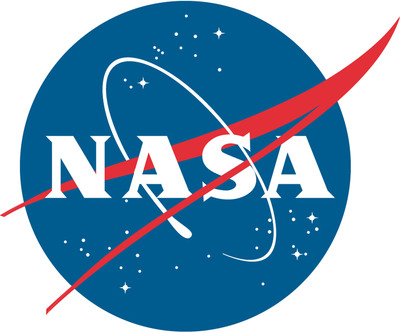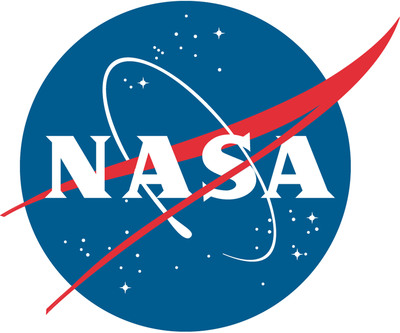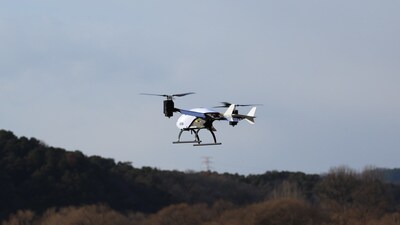Apollo Astronaut James McDivitt Dies at Age 93
WASHINGTON, Oct. 17, 2022 /PRNewswire/ — Former NASA astronaut James A. McDivitt, who commanded the Gemini IV and Apollo 9 missions, died Oct. 13. McDivitt passed away peacefully in his sleep surrounded by his family and friends in Tucson, Arizona. He was 93 years old.
McDivitt was born June 10, 1929, in Chicago. He graduated from Kalamazoo Central High School, in Kalamazoo, Michigan, before going on to receive a Bachelor of Science degree in Aeronautical Engineering from the University of Michigan, graduating first in his class in 1959.
He joined the Air Force in 1951 and retired with the rank of Brig. General. He flew 145 combat missions during the Korean War in F-80 and F-86 aircraft. He was a graduate of the U.S. Air Force Experimental Test Pilot School and the U.S. Air Force Aerospace Research Pilot course and served as an experimental test pilot at Edwards Air Force Base, California. He logged more than 5,000 flying hours during his piloting career.
McDivitt was selected as an astronaut by NASA in September 1962 as part of NASA’s second astronaut class.
He first flew in space as commander of the Gemini IV mission in June 1965. McDivitt was joined by fellow Air Force pilot Ed White on the program’s most ambitious flight to date. During Gemini IV, White would become the first American to venture outside his spacecraft for what officially is known as an extravehicular activity (EVA) or as the world has come to know it, a spacewalk. In the following years, it was a skill that allowed Apollo explorers to walk on the Moon and American astronauts and their partners from around the world to build the International Space Station. The mission’s four-day duration nearly doubled NASA astronauts’ previous time in space to that point, with the longest American spaceflight previously being Gordon Cooper’s 34-hour Mercury 9 mission.
McDivitt’s second spaceflight as the commander of Apollo 9 played a critical role in landing the first humans on the Moon. This was the first flight of the complete set of Apollo hardware and was the first flight of the Lunar Module. The mission launched from NASA’s Kennedy Space Center on March 3, 1969, with Commander James McDivitt, Command Module Pilot David Scott, and Lunar Module Pilot Russell Schweickart. After launch, Apollo 9 entered Earth orbit and the crew performed an engineering test of the first crewed lunar module, nicknamed “Spider,” from beginning to end. They simulated the maneuvers that would be performed during actual lunar missions. During the mission, the astronauts performed a series of flight tasks with the command and service module and the lunar module. The top priority was rendezvous and docking of the lunar module with the command and service module. The crew also configured the lunar module to support a spacewalk by McDivitt and Schweickart. On Flight Day 10, March 13, 1969, the Apollo 9 capsule re-entered Earth’s atmosphere and splashed down in the Atlantic Ocean, within three miles and in full view of the recovery ship, the USS Guadalcanal, about 341 miles north of Puerto Rico.
McDivitt logged more than 14 days in space.
After Apollo 9, he became manager of lunar landing operations, and led a team that planned the lunar exploration program and redesigned the spacecraft to accomplish this task. In August 1969, he became manager of the Apollo Spacecraft Program, guiding the program through Apollo 12, 13, 14, 15 and 16.
McDivitt retired from the U.S. Air Force and left NASA in June 1972, to take the position of executive vice-president, corporate affairs for Consumers Power Company. In March 1975, he joined Pullman, Inc. as executive vice-president and a director. In October 1975 he became president of the Pullman Standard Division, The Railcar Division, and later had additional responsibility for the leasing and engineering and construction areas of the company. In January 1981 he joined Rockwell International as senior vice president, government operations, and Rockwell International Corporation, Washington, D.C.
His numerous awards included two NASA Distinguished Service Medals and the NASA Exceptional Service Medal. For his service in the U.S. Air Force, he also was awarded two Air Force Distinguished Service Medals, four Distinguished Flying Crosses, five Air Medals, and U.S. Air Force Astronaut Wings. McDivitt also received the Chong Moo Medal from South Korea, the U.S. Air Force Systems Command Aerospace Primus Award, the Arnold Air Society JFK Trophy, the Sword of Loyola, and the Michigan Wolverine Frontiersman Award.
![]() View original content to download multimedia:https://www.prnewswire.com/news-releases/apollo-astronaut-james-mcdivitt-dies-at-age-93-301651456.html
View original content to download multimedia:https://www.prnewswire.com/news-releases/apollo-astronaut-james-mcdivitt-dies-at-age-93-301651456.html
SOURCE NASA





